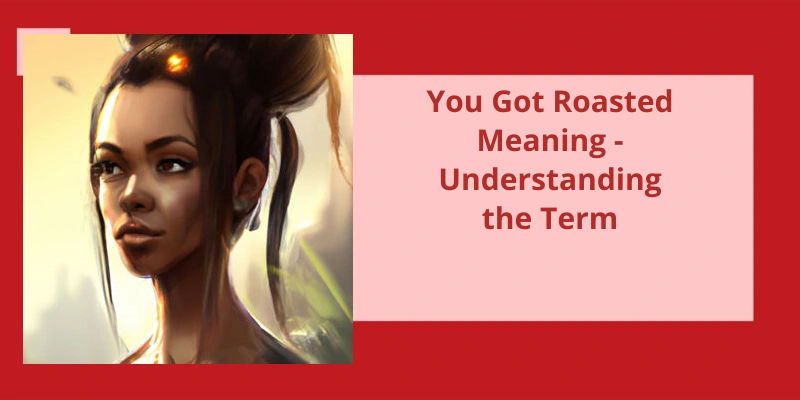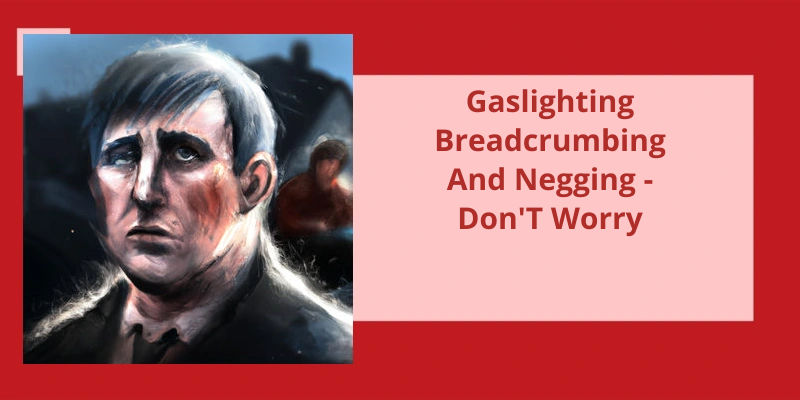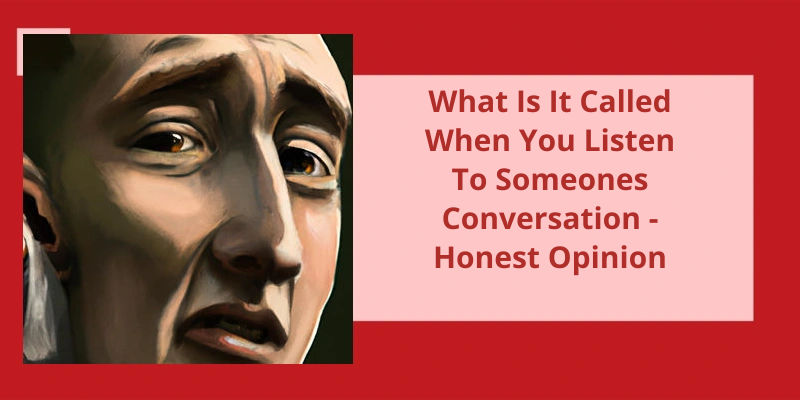Getting roasted has become a common phenomenon in today's society, especially when it comes to the internet and social media. When someone is roasted, they’re subjected to severe criticism that can range from playful teasing to downright verbal abuse. The term "you got roasted" is often used to describe someone who’s been the target of such ridicule and is now feeling the after-effects of it.
Did I Just Got Roasted?
It’s hard to say definitively whether or not someone has been roasted, as the definition of the term can be somewhat subjective. Generally speaking, though, if someone is getting roasted, theyre probably feeling pretty humiliated or embarrassed.
One thing to keep in mind is that roasting is often done as a form of humor or even camaraderie. If someone is being roasted in this context, it’s usually because theyre part of a group (like coworkers or friends) who’re all taking playful shots at each other. In this case, it’s less about one person being singled out and more about everyone letting loose and having some laughs.
This is especially true if the roasting is happening in front of a lot of other people, like at a party or gathering.
While it can be fun to joke around with friends and coworkers, it’s important to make sure that everyone is comfortable with the level of teasing going on and that nobody is being targeted unfairly.
How to Handle Being Roasted in a Professional Setting, Such as During a Job Interview or Presentation.
- Stay calm and composed throughout the roasting.
- Listen carefully to what the roaster is saying.
- Take responsibility for any mistakes that you’ve made.
- Show your sense of humor and ability to laugh at yourself.
- Respond to the roaster with a witty comment, but avoid being rude or offensive.
- Use the opportunity to show your resilience and ability to handle pressure.
- Thank the roaster for their feedback and insights.
- Remember that being roasted isn’t a personal attack, but rather an opportunity for growth and learning.
Now that we understand what it means to get roasted, it’s important to recognize the reasons why someone might choose to roast another person. Sometimes roasting is done in a playful way between friends, but other times it can be a way for someone to express their frustrations or anger towards another person. In this article, we’ll explore the different types of roasting and the potential consequences of being on the receiving end of a roast.
What Does You Just Got Roasted?
Getting roasted can be a hurtful experience. Whether it happens in person or online, being the target of someones criticisms can make you feel small and insignificant. It can be especially tough if the person doing the roasting is someone you respect or admire. However, being roasted can also be an opportunity for growth. When someone points out one of your flaws or mistakes, it can inspire you to work harder and become a better version of yourself.
What makes a good roast? A good roaster is someone who’s quick-witted and observant. They’re able to pick up on small details and use them to make pointed, specific criticisms. However, a good roaster is also someone who knows their audience. They understand that their jokes should be appropriate to the situation and not too cruel or hurtful. A good roast should make people laugh, not feel uncomfortable or attacked.
If youve been roasted, the best thing you can do is take a deep breath and try to remember that the roasters comments aren’t a reflection of your worth as a person. It’s natural to feel defensive or upset, but try not to let those feelings take over. Instead, try to listen to what the roaster is saying and see if theres anything you can learn from their criticisms. If you feel like their comments were unwarranted or unfair, it’s important to have a calm conversation with them afterwards and express how their words made you feel.
When it comes to roasting others, it’s important to remember that theres a fine line between being funny and being cruel. It’s okay to poke fun at someones quirks or mistakes, but it’s not okay to attack their character or make them feel small. If youre going to roast someone, make sure you know them well enough to understand what their boundaries are and what topics are off-limits. If your roasting is making people uncomfortable or unhappy, it’s time to reassess your approach.
By listening to what others have to say about us, we can become more self-aware and better understand our strengths and weaknesses.
Source: What does ‘roasting’ someone mean?..
It’s interesting to explore the different meanings and uses of words we may come across in our everyday language. One such word is “roast” – did you know that it can actually be used as a verb, a noun, or an adjective depending on the context? Let’s dive a little deeper into each of these variations of the word and explore their meanings.
What Type of Word Is Roast?
As a verb, roast means to cook food, usually meat, by baking in an oven or over an open fire. This cooking method involves exposing the food to dry heat, which creates a crispy exterior while also cooking the interior. Roasting can be done with a variety of meats, including beef, chicken, turkey and pork. Additionally, vegetables such as potatoes, carrots and onions can also be roasted.
A roast dinner is a traditional meal in many Western cultures, particularly in Britain and the United States, and is often served on Sunday afternoons or for special occasions such as Christmas. The meat can be served as a joint, sliced and arranged on a platter, or served on a plate with the vegetables and gravy.
In this context, it refers to the crispy browned surface that forms on the food during the cooking process. Roast potatoes, for example, are potatoes that have been cooked in oil or fat until they’re crispy on the outside and soft on the inside.
In addition to it’s culinary meanings, roast can also be used metaphorically to mean to criticize someone harshly and publicly. This usage originates from the practice of roasting a person in a public gathering as a form of entertainment. Today, roasting is a popular form of comedy in which comedians insult each other and themselves in a good-natured way.
Now that we know the definition of “roast” on social media platforms, let’s dive deeper into what it means specifically in the context of TikTok.
What Does Roast Mean in TikTok?
However, on TikTok specifically, “roast” has taken on a slightly different meaning. On the platform, roasting is more lighthearted and often used in the context of comedy and entertainment. People will roast their friends or even themselves in a playful way, often using silly or exaggerated insults.
Roasting typically involves pointing out flaws or weaknesses in a humorous way, which can be seen as a form of constructive criticism.
While it may not be the most serious form of criticism, it still allows for expression and creativity, and can be a great way to build camaraderie among friends and followers on the platform.
Whether you love it or hate it, roasting on TikTok is here to stay, and will likely continue to evolve as the platform grows and changes over time.
The History of Roasting as a Form of Entertainment, and It’s Evolution in the Age of Social Media
- Roasting began as a way to entertain and mock individuals in the Middle Ages.
- By the 20th century, roasting became a tradition in comedy clubs and on television.
- Social media has allowed for the rise of internet roasts, giving a new platform for the artform.
- Celebrities and public figures have been frequent targets of roasting, with events like the Comedy Central Roasts gaining immense popularity.
- Roasting has evolved to encompass various forms of media, including podcasts and online videos.
- While it’s origins may have been controversial, roasting continues to thrive as a beloved form of entertainment.
The meaning of the phrase “roasted” is often associated with criticism or anger directed towards someone. It implies a scathing rebuke that can leave the recipient feeling embarrassed or ashamed. While this term can be used in a lighthearted way, the connotation is usually negative and not meant to be taken lightly. In this article, we will explore the different contexts in which the phrase “roasted” can be used and examine how it reflects the dynamics of human interaction.
What Does the Phrase Roasted Mean?
The phrase “roasted” is commonly used to describe the act of criticizing or speaking harshly to someone. It’s a figurative term that’s more commonly used in informal settings, such as in social media, television shows, or in conversations with friends.
It’s a common way to describe negative reviews of movies, music, or other forms of entertainment. A movie that’s widely criticized for being poorly written or badly acted may be said to have been “roasted” by critics.
While it can be uncomfortable or embarrassing to be the target of a roast, it’s often done in a good-natured way.
As social media has become an integral part of our day-to-day lives, it’s also brought along it’s own language and expressions. One such term that’s gained popularity in the realm of social media is “roast”. It involves asking others to mock oneself, usually by putting up a photo, and has sparked controversy over the line between harmless fun and cyberbullying.
What Does Roast Mean in Social Media?
Roasting is a term commonly used in social media and refers to a practice where one individual engages in playful banter with another, often resulting in witty and humorous exchanges. This usually takes place in group settings where participants prepare humorous remarks that are directed towards one another.
However, the practice of roasting on social media has come under scrutiny in recent years, with some arguing that it constitutes cyberbullying. This is particularly when individuals are asked to “mock” themselves publicly, whether by posting pictures or videos of themselves, which can lead to negative and hurtful feedback from others. While some individuals may find the feedback amusing, others may find it quite damaging to their mental health.
Conclusion
It’s meaning refers to the act of being severely criticized or humiliated, often in a public setting, often for comedic effect. While some may see it as a harmless form of humor or a way to toughen up and learn from criticism, others argue that it can perpetuate a culture of bullying and humiliation. Regardless of one's personal opinion, it's important to approach criticism and feedback with an open mind and to remember the value of kindness and empathy in all interactions, whether online or in person.






